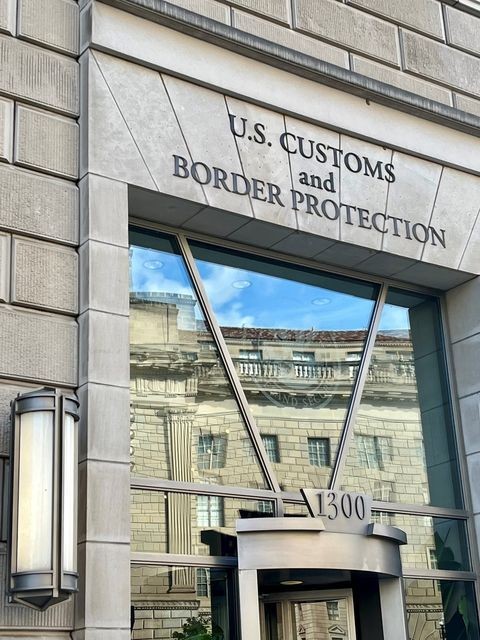Environmental, Social, and Governance
Overview
As legal and regulatory frameworks emerge and change alongside evolving voluntary standards, sustainability considerations remain a priority for stakeholders globally. Crowell & Moring’s global environmental, social, and governance (ESG) team seamlessly collaborates across disciplines to guide clients—both domestic and multinational—through this shifting landscape. We draw on the deep industry, government, and policy experience of dozens of lawyers across various fields as well as experts from our global policy affiliate, Crowell Global Advisors.
Our team advises clients across industries on their full range of ESG and sustainability programs and compliance, including voluntary and mandatory sustainability reporting frameworks, corporate climate and net-zero commitments, circular economy, carbon offsets, greentech transactions, forced labor and social responsibility, supply chain due diligence, greenwashing, investigations, litigation, and anti-corruption.
Contacts
Insights
Client Alert | 3 min read | 02.10.26
UK FCA Proposes New Sustainability Disclosure Rules for Listed Companies
The UK Financial Conduct Authority (FCA) recently issued consultation paper CP26/5, proposing to replace the existing Task Force on Climate-related Financial Disclosures (TCFD) requirements with new rules mandating listed companies to report against the UK Sustainability Reporting Standards (UK SRS). These are based on the IFRS Sustainability Disclosure Standards developed by the International Sustainability Standards Board (ISSB).
Firm News | 2 min read | 01.16.26
Crowell & Moring Represents FGV Holdings in Successful Modification of CBP Withhold Release Order
Publication | 01.05.26
Client Alert | 7 min read | 12.17.25
Representative Matters
Our experience covers a wide range of ESG issues, including:
Cross-cutting Sustainability Governance and Risk Management
- Advising a Fortune 5 tech company on the full spectrum of ESG issues, requirements, and developments; including mandatory ESG reporting, investigations and enforcement response, green claims and marketing, decarbonization strategy, supply chain engagement, carbon offsets strategy and contracting, and social responsibility.
- Advising a global financial services company on comprehensive risk analysis regarding ESG-related commitments and arrangements.
- Advising a multinational fashion company on multi-jurisdictional sustainability requirements, communications risks, mandatory reporting requirements, and circular economy issues.
- Advising a multinational retailer and manufacturer on circular economy requirements, including developments in the regulation of plastics, extended producer responsibility (EPR), returns and recommerce, and waste management.
- Advising a Fortune 50 energy company on preparation of a sustainability legal risk matrix for in-house legal department.
Sustainability-Related Communications Counseling: ESG/Climate Disclosures, Green Claims, and Greenwashing Risk Mitigation
- Advising multinational companies on California climate disclosure laws and European sustainability disclosure requirements.
- Reviewing and assisting in the drafting of public disclosures for listed companies, including treatment of ESG topics in Integrated Annual Reports.
- Advising one of the world’s largest consumer internet investment groups on the development of their technology-related “S” and “G” reporting domains, including use of maturity models and establishment of reportable KPIs as well as and management of interactions with auditors.
- Providing legal risk assessments for a variety of proposed sustainability commitments and announcements and assisting with development of annual sustainable impact report for a Fortune 500 tech company.
- Advising a global fast food corporation regarding recycling claims applicable to disposable materials used in food packaging.
- Advising the world’s largest retailer on the development of a new seafood sustainability labeling system for private-label frozen seafoods.
- Advising the leading paper industry trade association regarding FTC Green Guides matter, including comparative environmental benefit claims between corrugated paperboard and plastic cartons.
- Advising a consumer battery manufacturer company regarding “green claims” and labeling relating to its incorporation of recycled materials into batteries.
- Advising one of the nation’s largest beer companies regarding advertising claims relating to renewable energy and “waste-free” status.
- Advising a Fortune 200 company regarding U.S. Securities and Exchange Commission reporting obligations with respect to environmental liabilities, including penalties and remediation obligations.
- Advising global oil and gas company on advertising claims and maintaining internal knowledge management system.
Supply Chain Governance, Due Diligence, and Compliance
- Reviewing supplier code of conduct for a Belgium-based food-industry multinational, with emphasis on environmental claims and risks of misleading trade practices.
- Advising a private equity fund and fund manager with more than $50 billion in assets on its investments in the Asia-Pacific with respect to forced labor and compliance with the U.S. Uyghur Forced Labor Prevention Act.
- Counseling a client regarding international and U.S. standards for importation of recyclable wastes from foreign countries.
- Assisting a global manufacturing company in creating and maintaining a hazardous materials transportation compliance program.
Complex Commercial Transactions
- Advising a multinational company on multiple multimillion-dollar carbon offset transactions.
- Performing diligence on ESG- and sustainability-related terms and conditions in M&A transactions and commercial agreements.
- Representing an energy infrastructure investor in over 30 acquisitions of renewable energy projects, including the largest wind power facility in the United States Advising our client on relevant environmental, energy, real estate, and tax due diligence, and regulatory requirements.
- Representing a multinational consumer goods company in acquisitions of emerging growth companies offering goods or services focused on natural ingredients and/or sustainability, including assessing risks relating to regulatory compliance, supply chain, and data privacy and cybersecurity.
- Providing tax counseling on a carbon capture and sequestration project with capital investment of over $200 million that will generate credits under Section 45Q of the Internal Revenue Code.
Crises, investigations, litigation, and alternative dispute resolution
- Successfully defending a multinational snack foods company against greenwashing class action litigation.
- Successfully challenging misleading energy savings claims for the nation’s largest solar energy provider, resulting in a landmark NAD decision setting the standards for making such claims.
- Leading investigation on behalf of renewable fuels compliance monitoring company with material exposure. Advised C-suite regarding financial disclosures, setting of reserves, and engaging with auditors.
- Monitoring climate change litigation across the United States to advise companies on potential changes in compliance and disclosure obligations.
Public affairs
- Launching the world’s largest public-private partnership to promote ethical business practices for the medical device and biopharmaceutical sectors in the Asia-Pacific.
- Developing ongoing engagement opportunities with priority governments and securing minister and head of state recognition of the need to improve land-based waste management and reduce leakage of litter into the marine environment.
- Developing customized initiatives, partnerships, and events for industry stakeholders and non-governmental organizations looking to advance environmental sustainability.
- Supporting C-level executive engagement at the most prominent international institutions and global environmental meetings.
- Advising an industry association on developing and advancing policy initiatives in the Asia-Pacific relating to waste management issues and barriers to financing waste management infrastructure.
- Representing client advocacy positions in international environmental agreement negotiations.
Contacts
Insights
Client Alert | 3 min read | 02.10.26
UK FCA Proposes New Sustainability Disclosure Rules for Listed Companies
The UK Financial Conduct Authority (FCA) recently issued consultation paper CP26/5, proposing to replace the existing Task Force on Climate-related Financial Disclosures (TCFD) requirements with new rules mandating listed companies to report against the UK Sustainability Reporting Standards (UK SRS). These are based on the IFRS Sustainability Disclosure Standards developed by the International Sustainability Standards Board (ISSB).
Firm News | 2 min read | 01.16.26
Crowell & Moring Represents FGV Holdings in Successful Modification of CBP Withhold Release Order
Publication | 01.05.26
Client Alert | 7 min read | 12.17.25
Insights
Over 170 Countries Agree to Develop Treaty on Plastic Pollution: What You Need to Know
|03.07.22
C&M International
- |
12.01.21
Washington Legal Foundation
European Commission Issues a Proposal for a Directive on Corporate Sustainability Due Diligence
|02.24.22
Crowell & Moring’s International Trade Law
U.S. Senators Introduce the Slave-Free Business Certification Act
|02.17.22
Crowell & Moring’s International Trade Law
Will New York’s Fashion Sustainability and Social Accountability Act Set a Trend?
|01.18.22
Crowell & Moring’s Retail & Consumer Products Law Observer
Professionals
Insights
Client Alert | 3 min read | 02.10.26
UK FCA Proposes New Sustainability Disclosure Rules for Listed Companies
The UK Financial Conduct Authority (FCA) recently issued consultation paper CP26/5, proposing to replace the existing Task Force on Climate-related Financial Disclosures (TCFD) requirements with new rules mandating listed companies to report against the UK Sustainability Reporting Standards (UK SRS). These are based on the IFRS Sustainability Disclosure Standards developed by the International Sustainability Standards Board (ISSB).
Firm News | 2 min read | 01.16.26
Crowell & Moring Represents FGV Holdings in Successful Modification of CBP Withhold Release Order
Publication | 01.05.26
Client Alert | 7 min read | 12.17.25
Contacts
Insights
Client Alert | 3 min read | 02.10.26
UK FCA Proposes New Sustainability Disclosure Rules for Listed Companies
The UK Financial Conduct Authority (FCA) recently issued consultation paper CP26/5, proposing to replace the existing Task Force on Climate-related Financial Disclosures (TCFD) requirements with new rules mandating listed companies to report against the UK Sustainability Reporting Standards (UK SRS). These are based on the IFRS Sustainability Disclosure Standards developed by the International Sustainability Standards Board (ISSB).
Firm News | 2 min read | 01.16.26
Crowell & Moring Represents FGV Holdings in Successful Modification of CBP Withhold Release Order
Publication | 01.05.26
Client Alert | 7 min read | 12.17.25


















